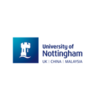The hands-on course will prepare individuals for a variety of research-intensive careers. The latest advancements in cognitive neuroscience will be taught, along with the development of transferable skills such as coding and MATLAB, problem-solving, and presenting work. Students will collect their own data and learn to analyze and visualize it.
The university has made significant contributions to cognitive neuroscience, including the development of Magnetic Resonance Imaging. Additionally, the university is leading the way in creating a new wearable brain scanner using magnetic fields.
Taught by research-active academics, the course offers the opportunity to specialize in a research project. Past projects have included topics such as measuring sight after stroke using diffusion tensor imaging, human perception of time, and brain stimulation for post-brain tumor surgery rehabilitation.
The course is part of the Sir Peter Mansfield Imaging Centre, with strong connections to other academic departments within the university.








